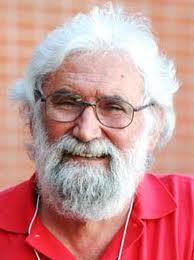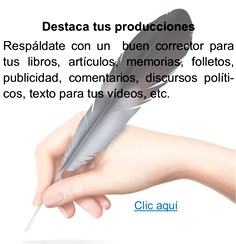 Leonardo Boff
Leonardo Boff
La crisis del neoliberalismo ha alcanzado el corazón de los países centrales que se arrogaban el derecho de conducir no solo los procesos económico-financieros sino también el propio curso de la historia humana. Es la crisis de la ideología política del estado mínimo y de las privatizaciones de los bienes públicos, pero también del modo de producción capitalista exacerbado en extremo por una concentración de poder como nunca antes se había visto en la historia. Estimamos que esta crisis tiene carácter sistémico y terminal.
El genio del capitalismo siempre ha encontrado salidas para su propósito de acumulación ilimitada. Para eso ha usado todos los medios, inclusive la guerra. Ganaba destruyendo y ganaba reconstruyendo. La crisis de 1929 se resolvió no por la vía de la economía sino por la vía de la Segunda Guerra Mundial. Ese recurso parece ahora impracticable, pues las guerras son tan destructivas que podrían exterminar la vida humana y gran parte de la biosfera. Pero no estamos seguros de que, en su insania, el capitalismo no use este medio.
Esta vez surgen dos límites insuperables, lo que justifica decir que el capitalismo está concluyendo su papel histórico. El primero es el mundo lleno, es decir que el capitalismo ha ocupado todos los espacios para su expansión a nivel planetario. El otro, verdaderamente insuperable son los límites del planeta Tierra. Sus bienes y servicios son limitados y muchos no renovables. En la última generación quemamos más recursos energéticos que en todas las generaciones anteriores, nos asegura el analista italiano Luigi Soja. ¿Qué haremos cuando estos alcancen un punto crítico o simplemente se agoten? La escasez de agua potable puede poner a la humanidad frente a la destrucción de millones de vidas.
Las regulaciones y los controles propuestos hasta ahora han sido simplemente ignorados. La Comisión de la Naciones Unidas para la Crisis Financiera y Monetaria Internacional, cuyo coordinador era el premio Nobel de Economía Joseph Stiglitz (llamada Comisión Stiglitz) realizó un gran esfuerzo desde enero de 2009 para presentar reformas intrasistémicas de cuño keynesiano.
En ella se proponía una reforma de los organismos financieros internacionales (FMI, Banco Mundial) y de la OMC (Organización Mundial del Comercio). Se preveía la creación de un Consejo de Coordinación Económica global del mismo nivel que el Consejo de Seguridad, la constitución de un sistema de reservas globales para contrapesar la hegemonía del dólar como moneda de referencia, la institución de una fiscalización internacional, la abolición de los paraísos fiscales y del secreto bancario y, por último, una reforma de las agencias de certificación. Todo fue rechazado. La ONU aceptó solamente la constitución permanente de un Grupo de Expertos de Prevención de las Crisis, al que nadie da importancia, porque lo que realmente cuenta son las bolsas y la especulación financiera.
Esta constatación decepcionante nos convence de que la lógica de este sistema hegemónico puede hacer que el planeta no sea ya amigable para nosotros, y llevarnos a catástrofes socio-ecológicas muy graves, hasta el punto de amenazar nuestra civilización y la especie humana. Lo cierto es que este tipo de capitalismo, que en la Río+20 se revistió de verde con el objetivo de poner precio a todos los bienes y servicios naturales y comunes de la humanidad, no tiene condiciones a medio ni a largo plazo para garantizar su hegemonía. Otra forma de habitar el planeta Tierra y de utilizar sus bienes y servicios deberá surgir.
El gran desafío es cómo procesar la transición rumbo a un mundo postcapitalista liberal, entendido como un sistema social que esté orientado por el Bien Común de la Humanidad y de la Tierra, que sustente toda la vida y que exprese una relación nueva de pertenencia y de sinergia con la naturaleza y con la Tierra.
Es necesario producir, pero respetando el alcance y los límites de cada ecosistema, no meramente para acumular sino para atender, de forma suficiente y decente, las demandas humanas. Es importante también cuidar de todas las formas de vida y buscar el equilibrio social, sin dejar de pensar en las futuras generaciones que tienen derecho a una Tierra preservada y habitable.
No cabe en este espacio lanzar alternativas en curso. Nos atenemos a lo que es posible intrasistémicamente, ya que no hay como salir de él a corto plazo.
Asistimos al hecho de que América Latina y Brasil, en la división internacional del trabajo, están condenados a exportar lo que se extrae de sus minas y commodities, bienes naturales como alimentos, granos y carnes. Para hacer frente a este tipo de imposición deberíamos seguir los pasos ya sugeridos por varios analistas, especialmente por un gran amigo de Brasil, François Houtart, en su reciente libro con otros colaboradores: Un paradigma poscapitalista: el Bien Común de la Humanidad (Panamá 2012).
En primer lugar, dentro del sistema luchar por normas ecológicas y regulaciones internacionales que cuiden lo más posible los bienes y servicios naturales importados de nuestros países; que traten de su utilización de forma socialmente responsible y ecológicamente correcta. La soya es para alimentar primero a la gente, y solo después a los animales.
En segundo lugar, cuidar nuestra autonomía, rechazando el neocolonialismo de los países del Centro que nos mantienen, como antaño, en la Periferia, subalternos, agregados y meros suplentes de lo que les falta en bienes naturales. Antes, debemos cuidar de incorporar tecnologías que den valor añadido a nuestros productos, crear innovaciones tecnológicas y orientar la economía, primero, hacia el mercado interno y, luego, al externo.
En tercer lugar, exigir a los países importadores que contaminen lo menos posible sus ambientes y que contribuyan financieramente al cuidado y a la regeneración ecológica de los ecosistemas de donde importan los bienes naturales, especialmente de la región amazónica y del cerrado.
Se trata de reformas y todavía no de revoluciones. Pero ayudan a crear las bases para proponer un paradigma distinto que no sea la prolongación del actual, perverso y decadente.
What to demand from neoliberal capitalism in crisis
Leonardo Boff
Theologian
Earthcharter Commission
The crisis of neoliberalism has reached the heart of the main countries that assumed unto themselves the right not only to determine the economic-financial processes, but also to set the very course of human history. It is a crisis of the political ideology of the minimalized state and privatization of public goods, as well as of the capitalist form of production, exacerbated to the extreme by a concentration of power such as history has never before seen. We expect that this crisis will have a systemic and terminal character.
The genius of capitalism has always found means to their ends of unlimited accumulation, and has used them all, including war. Capitalism would gain by destroying, and then by rebuilding. The crisis of 1929 was solved not by economic means, but by the Second World War. That course seems now impracticable, because war is so destructive that it could exterminate human life and the better part of the biosphere. But we are not certain that, in its insanity, capitalism will not resort to this means.
This time there are insurmountable limits, that allow to say that the historic time of capitalism is ending. The first is the filled-up world, that is, capitalism has occupied all the space at the planetary level for its expansion. The other, that is truly insurmountable, are the limitations of planet Earth. Her goods and services are limited and many of them are not renewable. As Italian analyst Luigi SojaIn assures us, the past generation has consumed more energy resources than all previous generations combined. What will we do when they reach a critical point, or simply are exhausted? The scarcity of drinking water can force humanity to confront the destruction of millions of lives.
Until now, the regulations and controls that have been proposed have simply been ignored. The United Nations Commission for the International Financial and Monetary Crisis, whose coordinator was Nobel laureate for Economics Joseph Stiglitz, (known as the Stiglitz Commission), launched a great effort in January 2009 to present Keynesian type, intra-systemic reforms.
It proposed a reform of the international financial organisms (IMF, World Bank) and of the WMO (World Market Organization). It envisioned the creation of a global Council of Economic Coordination at the same level as the Security Council, the construction of a system of global reserves to counterbalance the hegemony of the dollar as the currency of reference, the institution of an international fiscal system, the abolition of tax havens and banking secrecy, and, finally, reform of the certification agencies. It was all rejected. The UN accepted only the creation of a permanent Group of Experts for the Prevention of Crises, to which no one pays any attention, because what really matters are the stock markets and financial speculation.
This disappointing realization convinces us that the logic of this hegemonic system can cause the planet to become unfriendly to us, and lead us to grave socio-ecological catastrophes, so severe that they could threaten our civilization and the human species. In Rio+20, this type of capitalism was dressed up in green, in order to put a price on all natural goods and services that are common to humanity. The fact is that it lacks the medium and long range conditions needed to guarantee its hegemony. A different way of inhabiting the planet Earth and utilizing her goods and services must arise.
The great challenge is how to handle the transition towards a post-capitalist liberal world, namely, to a social system that is oriented towards the Well Being of Humanity and of the Earth, that sustains all life and reflects a new relationship of belonging and of synergy with nature and the Earth.
Production is necessary, but in a way that respects the reach and limits of each eco-system, not merely to accumulate but to meet human needs, in a sufficient and decent form. It is also important to care for all forms of life and to seek a social equilibrium, with a view always to the future generations that have a right to a well-preserved and inhabitable Earth.
On these pages, we must set forth alternatives. We start with what is possible within the current system, because there is no way to get out of it in a short time.
We see that in the international division of labor, Latin America and Brazil are condemned to exploit what is extracted from their mines and commodities, natural goods like food, grains and meats. To confront this type of exploitation we must follow the steps suggested by several analysts, especially by the great friend of Brazil, François Houtart, in his recent book, with other collaborators: A Post-Capitalist Paradigm: the Common Good of Humanity (Un paradigma poscapitalista: el Bien Común de la Humanidad, Panamá 2012).
First, to fight within the system for ecological norms and international regulations that, to the extent possible, care for the natural goods and services imported from our countries, and restrict their use to socially responsible and ecologically correct forms. Soybeans are first for feeding the people, and only after that, the animals.
Second, to protect our autonomy, to reject the neocolonialism of the central countries that, as in yesteryear, keep us on the periphery, secondary, subordinated and lesser suppliers of the raw materials they need. We must look for ways to incorporate technologies that give added value to our products, that create technological innovations and direct the economy, first, toward the internal market and only thereafter, to the external market.
Third, to demand that importing countries pollute the environment as little as possible, and that they contribute financially to the care and ecological regeneration of the ecosystems from which they import raw materials, especially from the Amazon and remote regions.
It is about reforms and not yet of revolutions. But they will help create a basis for proposing a new paradigm that is not a prolongation of the present, perverse and decadent one.
Leonardo Boff

